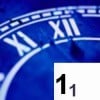Evidence?
I've observed a lot of disagreement on the forums concerning what constitutes "evidence" of what one thinks or believes, in a religious or non-religious context.
I love to study people and their behaviors, and my question to all who are interested is this:
What, in your opinion, constitutes valid evidence or proof of a concept?Facts, logic, and reason are the best things, and sometimes what seems deeply intuitively true considering the first three things.
So for me, what is most reasonable with all things considered, "wins" in my book.It seems that God cannot be proved or disproved on the physical plane. However, the force of all creation can be detected on the metaphysical plane.
God is not found in your imagination. This is what gripes the atheists.
TWISI"It seems that God cannot be proved or disproved on the physical plane. However, the force of all creation can be detected on the metaphysical plane.
God is not found in your imagination. This is what gripes the atheists.
TWISI"
What do you consider to be metaphysical evidence and what is the criteria?Having been shown to be incapable of offering anything valid to support their assertions and having used up their arsenal of making things up out of thin air, believers will then begin offering lame excuses they themselves could not possibly even know.
"In mathematics we can take our inner distance from the content of our statements. In the final analysis mathematics is a mental game that we can play or not play as we choose. Religion, on the other hand, deals with ourselves, with our life and death; its promises are meant to govern our actions and thus, at least indirectly, our very existence. We cannot just look at them impassively from the outside. Moreover, our attitude to religious questions cannot be separated from our attitude to society."
~ Neils Bohr [Statements of Bohr after the Solvay Conference of 1927, as quoted in Physics and Beyond (1971)]
God can be a more reasonable thing over other things, on a physical plane or point of view though.
True, but what do you constitute as a fact? What method makes something a fact? Universal acceptance, scientific method,...? Logic and reason kind of speak for themselves, that's true.
Under what circumstances would you accept an intuitive feeling as evidence?True, but what do you constitute as a fact? What method makes something a fact? Universal acceptance, scientific method,...? Logic and reason kind of speak for themselves, that's true.
Under what circumstances would you accept an intuitive feeling as evidence?
Well those are tougher questions..... My initial quick answer to the fact one, is along the lines of what you said. Universal acceptance/experience, and scientific findings are biggies for me.
As for deeper intuitions, I mentioned the other three things, facts reason and logic along with that. If all things line up, AND it seems to "ring true" on top of it all, that is like icing on the cake so to speak.
I don't and can't consider my own personal intuitions to be able to be known or felt by others of course (necessarily), or vice versa. So that one is more for me personally. There have been times that I have relied on intuition and I think it can be helpful in certain situations but that is something kind of separate. Intuition is kind of like a different category.
Common sense is a big one. That could be very relative though of course.
When things contradict, or are logically impossible, unreasonable, or go against facts as we know them (actually), then they truly deserve the skepticism they receive. Assertions can be easily made over and over, and don't impress me much. Looking at things as they really are, and being willing to accept that my wants and desires don't always equate to truth are big things. Not always easy, but more satisfying long term, like we see with many other things in life I think.God cannot be disproved. Metaphysics deals with what is beyond the physical plane.
When the heart stops beating where does the animating force of the body go? It goes somewhere. It is now not visible on the physical plane. But, it still exists. Proof?
There is all sorts of proof. But one can only be convinced by direct experience. Intuition is the only way to detect the reality of the metaphysical plane. Each to their own perceptions / means of proof!Intuition is something we think based on past experience, what past experience do you have with the Metaphysical plane that would make you think that experience help you decide if your intuition is correct?
The animating force you are speaking of is energy. Our bodies energy is given back to nature or the earth depending on what is done with the body.This animating force which we are speaking of seems to be that force which drives and directs every action going on within our body; every automatic reflex such as breathing, our heart beat. etc. It also seems to be at work being a driving force of what we call our intellectual decision making.
In every sense of the word "animating force" seems to be more intelligent than we are.
activities is gone upon death of the body seems to be an intelligent force. SO ... It seems to me that you are saying this energy which you are calling energy ... in intelligent energy.
Does this explain why some of the characteristics of energy seems to be destructive while others are constructive.You do understand that we can take a dead person and using electricity animate them. The electricity is directed by the brain. A dead person very often repeats the actions of the last directions given by the brain.
Oh my gosh, you are so absolutely humorous! I love it!
You are correct as far as it goes in running an electric current through a dead body causing the leg to jerk, and causing the heart to contract .... sometimes causing the heart to continue beating. We can run an electric current through a noodle causing it to vibrate or wiggle. This is not animation.
Science doesn't know what this thing you called an animational force is. Science can only determine its presence by watching the behavior of the body as a whole.
We can put a dead person on life support, keeping the heart beating and the lungs functioning, but doesn't cause the brain to continue to function. IMO when the brain isn't functioning, the body isn't truly alive.
Which brings up the question, When all of the physical parts are working correctly, is awareness created OR does the presence of awareness cause all of the physical parts to operate correctly?The brain simply sends electrical impulses to makes us move and function. Some happen without our thoughts and others require us to think about the movements. That's why a dead person can move when stimulated with electricity.
No awareness required, the vast majority of animals are not self aware, but move.You do understand that 'aware' and 'self-aware' are not considered to be synonymous?
Also, the 'animational force' jerami is speaking of (correct me if I got this wrong, jerami) would not necessarily need for the physical body to be aware that it was 'thinking'. That fact that some bodily functions are labeled involuntary does not imply his statement is wrong. Your comments about moving a dead person with electricity actually corroborates his thoughts.Emile You read my mind, I was getting ready to post much the same comment though I couldn't have done it as exquisitely as you just did.
Radman first used the term animating force, for lack of a better word , (?) I re used it.The soul and the will are one, obviously. When the body is gone the will still exists. I know many older people who have had their spouses, who passed away, visit them for a last goodbye. Don't you know people who have been contacted/visited by souls who have left the body, Rad man?
I have a strange story which you will not believe, but I believe… mostly because I want to believe:
My dog, named Atlas, a rat terrier, recently died. I was walking my dogs about three days after his death. A man came up behind me walking a rat terrier. My dogs ran over to this dog with their tails wagging. They NEVER do this, as they are rather arrogant and unfriendly… (unlike their master). Now, they probably thought it was Atlas, their buddy, based on what he looked like, but they treated this strange dog like a friend! The man explained to me that his dog had refused to head home per usual and insisted on running down the street straight for my dogs. The man said he was very surprised by this!
Could it be that my dog's spirit entered the body of this rat terrier to say a last good bye to his beloved friends? I think so.
Just examining possibilities! Whats wrong with that?I know a woman who has repeatedly claimed her dead father lives on in the same house. Because she didn't remember closing a door or turning a light off.
A grossly insufficient reason to believe in a supernatural universe existing alongside ours, IMHO....well, the car of my husband's grandmother was handed down to me after she died. I am telling you, the lights were always coming on of their own accord! I was quite sure the car was haunted by the grandfather who was was furious at me driving it. He had been a very cantankerous person in life.
And how did I know it was the grandfather and not the grandmother?
I was talking about being self aware and aware.
He seems to me to talking about some mysterious life force that animates and makes us move. We move (animation) because of electrical impulses. When those electrical impulses are cut of (spinal injury) we stop moving and feeling. When the brain stops the body stops, but sometimes the last brain sent to the body continues and we end up with a dead guy sitting up.
Life for that animates us is simple electricity.We move because our body is run by our soul which exists as will. Without the will animating it, the body will not move.. unless, as you mention, there is some left over energy running randomly through the body systems.
"When all of the physical parts are working correctly, is awareness created?"
No. Awareness incarnates into the physical body at the moment of conception on…(and came from the metaphysical plane of existence.) Awareness, will and soul are all one. Awareness cannot fully manifest, however, until the psyche is fully developed around age six.
Something like that.
Take it or leave it.
It is possible.Did your intuition tell you this or did you read it in a medical book?
You know medical doctors of the west do not deal with metaphysics. Healing doctors of the east, however, traditionally do.
Ahhhh. That which animates us mysteriously exists? That force somehow gives us the ability to be not only aware, but self aware also. And then, once gone, we are simply a lump of flesh and bones. As you say, we do have the ability to replicate a small portion of what that energy was capable of doing.
But we can't reanimate the form's ability to be either aware, or self aware. I suppose, one day we may. That, of course, will bring up another infinite number of questions.You've never seen or heard of an unconscious person (with no heart betting) being brought back to life by electrocuting his heart?
Well, there's a difference between being dead and almost dead. Didn't you ever see The Princess Bride?

But, seriously. We are discussing dead people. Not people who are still capable of being revived.Right, the brian deteriorates very quickly without oxogen. When it can no longer supply electrical impulses in it's self or the body for enough time it won't begin functioning again. However a properly executed electrical impulse can cause a dead persons eyes to open.
So, stating the obvious serves what purpose, exactly?
So we can send an electrical impulse to open the eyes of a dead person? Can that dead body see? No. What did you bring that up for?Because when we speak of animation we speak of movement. Electricity sent by the brain is what animates us.
Radman. The difference between the energy that animates you and I, and the electricity that manipulates a dead body is about as much as the difference between me sitting on the floor pushing a toy car with my hand and saying 'vroom vroom' and a race car driving around a track.
If you can't understand the difference, I don't see what purpose would be served in continuing in the conversation.In other words, Radman, Emile doesn't know the difference either.
Yes, the inevitable drive by one liner from ED. Ineffective? Certainly. Satisfying? I would hope so.
I will say the same thing to you as I did to Rad Man. If you can't understand the difference; continuing the conversation seems pointless.Yet, I understand the physics of electromagnetic radiation, and I would assume Radman does, too. We both know you don't.

I suppose one should assume that is true, simply because you say it. Since i know better, I'll simply respond with a

Don't bs someone who knows bs when they see it ED. It serves no purpose other than an attempt to create conflict. I'm not interested.You're free to point out any bs, but you can't because you don't know what you're talking about.
bs is kinda like a dead cat in the trunk of your car. Dont know what kind it is, don't know what color it is or what killed it; don't know anything else about it , but you do (for sure) know you are smelling it.
Not talking at or to anyone in particular.... just saying.You have such an interesting way of putting things.
In other words, you "believe" there is bs, yet you can find no evidence of it's existence.
We can make an appropriate comparison based on that...
God = bs.
I see no point. You have no idea what is being discussed, yet wish for someone to agree with you by explaining how they, too, are confused by the subject matter, at hand.
I have no interest in politely attempting to ferret out your level of understanding. There are many here who erroneously believe they possess some inherent obligation to find agreement. Who erroneously believe they have some answer to questions no one, throughout history, has been able to answer. Some who believe BS has a place at the table. I am not in those ranks.
If you notice, I don't spend a lot of time engaging those on the other far end. I don't, for the same reasons I rarely engage you in conversation. When it comes to BS I'm not interested. Honest, open and respectful discussion is enough for me. I appreciate your desire to engage. I simply am not interested.Why not start here.
http://health.howstuffworks.com/human-b … ricity.htm**bangs head against wall**
I do adore you anyway, rad man.Please don't bang your head. It'll cause pain. That works with electricity as well.
Electricity alone is not sufficient to animate a dead human as we see they are when alive. If electricity were sufficient as a sole explanation, them the dead bodies example would be just as animated as our live ones when electricity were applied. That a dead body is not as animated like a live persons is, shows there is more involved, more going on, than electricity can explain.
This explains it to me at least. We can know what it ISNT even if we can't all agree on what it IS. Does this help?The brain kinda needs to be alive in order to route that electricity through the body in an organized fashion.
It's the difference between powering your house via a system of electrical cords, and powering your house by covering it in tin foil and sticking a lightning rod on the roof and hoping for the best.I agree the brain needs to be alive for us to do what we do, including with the electricity.
You didn't read the link did you? I can tell because you still don't understand. Go back and read the entire link, then get back to me.
Funny how the evidence refutes the belief.

If you have anything of value to add which will back up your claim......please, oh please, share it.
The value was added, it came in the form of showing you your claims were false.

 Since you didn't show anything to be false, and you have proven nothing to be true........do share what purpose your input has served.
Since you didn't show anything to be false, and you have proven nothing to be true........do share what purpose your input has served.Since Emile didn't show anything to be false, and Emile have proven nothing to be true........do share what purpose Emile's input has served.
Good point. That is why I had already said there was absolutely no purpose in carrying on a conversation about it with him; or you.
Why didn't you make a meaningful comment on the link I posted which explains the science behind how our bodies move rather than making an irrelevant comment and then telling others that they have contributed nothing to the conversation?
Rad man. You begin with a premise that there is no existence after death. That there is nothing more than what we see. I begin with an opposing premise.
It's very nice to think that you can definitively answer such a question. It must be grand to look at that link and think 'Well, hey now. There's the answer.' However, there isn't an answer to the question at hand. In order to believe it answers the question you must select information which supports your belief and ignore any information which doesn't.
I see your link as describing some of what we know in laymen's terms. What we know is a clue. It is not a definitive answer. I believe it is not definitive because I accept the same information you do, but I don't ignore any information that does not corroborate your conclusion.
Either way, if there was already a definitive answer I doubt we would have so many diligently researching in hopes of finding one.Four paragraphs, nothing. What is it that animates us again? Please read that link.
Thank you for explaining that you don't know what you're talking about, in a round-a-bout way.
You? Honest, open and respectful discussion? You?
It's kinda like someone asking what does a car look like and I show them a close up picture of a headlight. Or a close up picture of the battery. This would be true !!!! though it does not satisfy their curiosity.
"Which brings up the question, When all of the physical parts are working correctly, is awareness created OR does the presence of awareness cause all of the physical parts to operate correctly?"
A reasonable question, but not one can answer with surety. Still, Occam would indicate the first. In all known cases of complete bodily functions there is self-awareness, so it is possible that a complete, properly functioning body causes that awareness.
It is also true that an already existing awareness could cause the existing body parts to function, but that requires another "space" to exist in, as well as some form of supernatural (or at least undiscovered) "stuff" to construct that awareness out of. It requires something to do the constructing, something that is undetectable to all our senses, both biological and artificial and it requires some kind of actual, physical presence of the awareness that we also cannot detect.
Of the two, the first seems far more reasonable, and Occam would agree.Thanks for the totally open minded post. And I would agree with every word ;except I wouldn't agree wholeheartedly with either choice though I lean toward presence of awareness causes all of the physical parts to operate correctly?" But no one knows!
it (may or may not) require some kind of actual, physical presence in this space time continuum for the awareness that we also cannot detect. Point being that we can't detect it.But, we can certainly see it in action!
You can only "see it in action"...IF you assume (without evidence) that the awareness is causing physical workings and not the opposite.
It is extremely logical to assume that Spirit (our own) is animating our own bodies. Sit still, close your eyes... what do you perceive? Your own beingness/self is completely INVISIBLE! You provide your own evidence.
I do not know why you try to guess whether awareness is a product of the body or the body is a product of the awareness. What difference does it make to an atheist?
Apparently, Awareness is in the same category as a Pink Unicorn.
And what is the difference between awareness and self-awareness? Why differentiate?And if Spirit is nothing but a mental concept, existing only in our imagination? Is it still extremely logical? I think not.
It is an interesting test of logic and reason, that's why.You perceive your invisible self. You say, "I am!" That is the evidence of spirit. Will you be able to say "I am," on the astral plane? Yes.
Do we ever die? No.
Yes, the heart will stop.
The soul moves on.
This should be good news.Which of the 5 senses do I use to perceive this "invisible self"?
I speak and that is evidence of a supernatural "spirit"? You do understand that it is vibrating tissues that creates speech, right? Not supernatural "somethings" in another universe?
The term "astral plane" has no meaning in the English language. Would you care to define it according to what YOU mean by using the words?
Yes, we die. No one has ever produced evidence we do not - until they do the claim cannot be considered true.
Same thing - you cannot reasonable claim the soul moves on without proving there is a soul TO move on. So far that has not been done in spite of thousands of claims to the contrary.
You use inner feedback. You know that you exist and you proclaim you exist. You cannot say I do not exist. Your use of the word I means something does it not?
"The astral plane, also called the astral world, is a plane of existence postulated by classical (particularly neo-Platonic), medieval, oriental and esoteric philosophies and mystery religions. It is the world of the planetary spheres, crossed by the soul in its astral body on the way to being born and after death, and generally said to be populated by angels, spirits or other immaterial beings…" Dictionary"The astral plane, also called the astral world, is a plane of existence postulated by classical (particularly neo-Platonic), medieval, oriental and esoteric philosophies and mystery religions." (Bolding added)
[postulate: put forward, suggest, advance, posit, hypothesize, propose; assume, presuppose, presume, take for granted, imagine. Nowhere in the list do we find any indication that such a plane is real or has any connection with reality at all. This agrees with the truth that no person has ever been able to demonstrate such a plane, either using natural senses or artificial ones. It is, at this time in our development, imaginary only and not worthy of being considered as real in any manner.It is, at this time in our development, imaginary only and not worthy of being considered as real in any manner.
Is this a serious statement? Because, we imagine the why behind things on a daily basis. That; I'm sure you would consider to be worthy. Anything imagined, no matter how absurd, can be deemed 'worthy' if backed by enough money and clout. We see scientific claims being made as the result of incredibly expensive and highly selective searches for new facts which support taking what was once absurd seriously. We can see the possible reasons behind the money being spent to validate the claims. We all accept, on a daily basis, fantastical claims which cannot be proven to be true in anything but theory; because we believe brilliant scientists are on the right track of discovery. But, many brilliant scientists have been ridiculed for most of their careers simply for following a track of discovery which proved valid in the end, but wasn't acceptable to the collective during their search.
To claim that one avenue of discovery is unworthy of being considered as real in any manner is akin to claiming country isn't a musical genre because its earthy subjects appears to appeal to a great number of people and the standard person has a vocal range that can sing along with it. It is only an opinion limited and controlled by its own biases.
Yes, however, there are possibilities and one can certainly not rule out the possibility of the existence of an astral plane. Especially as Jesus explained, there are "many mansions" in my Father's house. He also mentions there is no marriage in heaven…(beyond the physical.) Yes, we get to be alive after we die… just without a body… well, actually we have our light blue-print body: the same as our physical body, but made out of light: light heart, light lungs, etc. There are many colors and ways to be creative on the astral plane. Of course you can also sleep away your astral life… just as you can sleep or eat or drink away your physical life. Its all up to each individual soul what they experience either here or there. The more awake you are the more fun you will have. Jesus said the harvest is abundant, but the laborers are few! In my opinion he meant the work it takes to go within and use intuition to perceive reality is not easy. but the rewards are great. How do we do this? Meditation!
Well. I am just rambling on because I have nothing to loose. So each to his own. This is just what I have been told by my guru. I believe it for many reasons, but the main reason is because I want to believe it.
Just sharin'. Ignore it if you can't stand it.I'm sitting here in this chair at 2;00 am. I am contemplating where I am going to be and what I might be doing this time tomorrow night, an can realistically see dozens of possibilities. Any of these possibilities are as real as the next. I think they are as real as any of my memories of days gone by. I've heard it said that the reality which my memories still hold and the reality of my potential future exist simultaneously and individually in another dimension.
A layman would say this idea is but the foolishness of an old man.
A scientist would say this just one aspect of the concept of quantum physics.
I understand little if anything of this concept called quantum physics. When I read anything about it, I telling myself, Yeah that makes sense! I feel like I understand the concept and feel like it is true. But I can't explain a bit of it. but I believe it cause I have experienced many different kinds of paranormal experiences. The individuals experience seems to be the only proof allowed to be seen while we share this physical existence here where we are.
It may be that when we have any of these kinds of experiences, the I Am of wherever these experiences are coming from is saying as you did; "I'm just sharing, Ignore it if you can't handle it".
Or embrace it, if you can!
...usually we are just so sleepy.
I almost deleted that whole post. I guess i'll leave it now. What do you think about the term "elder?"
Right! Neither choice is firm; both are a guess. I lean towards physicality causing awareness, simply because it is the far simpler answer, but it could be the other.
As to the lengths and depths religious believers will go to making stuff up out of thin air will often be aligned with their level of understanding and knowledge of the world around them coupled with their intellectual prowess.
Often, we find the excuses and assertions to be so elementary and puerile, one wonders if they are actually adults talking."We ought to remember that religion uses language in quite a different way from science. The language of religion is more closely related to the language of poetry than to the language of science. True, we are inclined to think that science deals with information about objective facts, and poetry with subjective feelings. Hence we conclude that if religion does indeed deal with objective truths, it ought to adopt the same criteria of truth as science. But I myself find the division of the world into an objective and a subjective side much too arbitrary. The fact that religions through the ages have spoken in images, parables, and paradoxes means simply that there are no other ways of grasping the reality to which they refer. But that does not mean that it is not a genuine reality. And splitting this reality into an objective and a subjective side won't get us very far."
"We must be clear that when it comes to atoms, language can be used only as in poetry. The poet, too, is not nearly so concerned with describing facts as with creating images and establishing mental connections."
~ Niels Bohr [in response to questions on the nature of language, as reported in Discussions about Language (1933)]
So you are saying that each person determines what constitutes "evidence" for them, in this particular example?
Yes. What else? Only we as individuals can prove God to ourselves as individuals.
Right?Within the parameters of your own definition, that would seem to be so. As for my own thoughts, I have no conviction about it. I'm simply wondering if that is how you see it. Do you feel that one's own perceptions are reliable?
One's own perceptions are not always reliable. But, one can always adjust their convictions as truth is known more clearly.
Not trying to be nitty gritty, but I really like to know what people think at the most detailed level. if it gets annoying, please just tell me to stop asking questions

Here's my question: the statement that something is not always reliable assumes that there is an outside truth which must be learned. Do you feel that what one perceives to be truth is also relative, or that there is an absolute truth?There is an absolute truth. Truth is not relative. The *perceiving* of absolute truth is the tricky thing. The third eye must come into play. That is all I can say for now.
While I am still learning more about the third eye thing, I100% agree with the first 3 sentences there.
Hence, that would negate your claim you support facts, logic and reason.
My apologies for the first part there, I neglected to delete that part, and my response begins with, "well...."
Yes, religious believers will tell us they support facts, logic and reason, but instead they will often deny or reject facts, logic and reason.
Disagreement on the topic of evidence within these forums rises primarily from the view common among materialists that anything not demonstrable on demand is not valid, which brings us to the question, of "evidence to who"? If you can't show them, then it isn't/wasn't real. It should come as no surprise that a God who wants relationships with people on an individual level doesn't reveal himself to everyone on youtube.
Spiritual experiences, real and lifechanging as they frequently may be, are by definition not tangible, repeatable or transferrable. Materialists conclude they are not real, but then folks with rabbit ears may doubt the existence of HBO. If you don't subscribe to the medium, it's content is beyond your grasp, so perhaps you will conclude it must not exist. So, while useless as "evidence" to another, the personal experience of believers may well be the most conclusive "evidence" they have ever encountered.
There begins our impasse. What one person could not be more certain of, another considers delusion. "Show me your evidence". Sorry, you may have to get your own. Good news is, it is there for everyone. Bad news is, nobody else can make you discern it.Very well said.
But - it might bring up the issue - which is - what is real?What we find with religious believers who operate from a system of belief is the use of fallacies, disingenuous and dishonest tactics as the only ammunition they possess in light of not having anything else to support their assertions. They believe anything they can make up out of thin air is valid and unquestionable, that is, if they themselves want to believe it to be valid. Even amongst themselves, they fight tooth and nail as to whose imaginary super friend can beat up the others imaginary super friend.
Believers will then assert the evidence they consider valid is there for everyone to see, yet they are incapable of showing it because it's all in their heads."To create and to annihilate material substance, cause it to aggregate in forms according to his desire, would be the supreme manifestation of the power of Man's mind, his most complete triumph over the physical world, his crowning achievement, which would place him beside his Creator, make him fulfill his Ultimate Destiny."
"The gift of mental power comes from God, Divine Being, and if we concentrate our minds on that truth, we become in tune with this great power."
~ Nikola Tesla
Yes!!! We have MANY things "real" but not demonstrably so. Experience is key.
Regarding spiritual evidences, I think you are right. No one's evidence can count for another's, but some can share and others can search it out.
If I wasn't a believer, and I sincerely sought God out (in case he existed and was really open to the idea even) then I am convinced he would hear my prayer to him and show himself to me. I don't believe all want to even want to consider such an idea, whatever their reasons are.Your perspective is consistent with the biblical one, that all are aware of spirituality but many choose to reject it. This is why the bible never argues that there is a God. Instead it presents that as a given all people know, but may rebel against. It is on this basis that the bible states all men are "without excuse".
 Sorry, but "spirituality" has not even been shown to exist let alone opining everyone is aware of it or are rebelling against it or rejecting it. That's like rejecting unicorns.
Sorry, but "spirituality" has not even been shown to exist let alone opining everyone is aware of it or are rebelling against it or rejecting it. That's like rejecting unicorns."Every one who is seriously engaged in the pursuit of science becomes convinced that the laws of nature manifest the existence of a spirit vastly superior to that of men, and one in the face of which we with our modest powers must feel humble. In this way the pursuit of science leads to a religious feeling of a special sort, which is indeed quite different from the religiosity of someone more naive."
~ Albert Einstein [Quoted in Helen Dukas and Banesh Hoffman, Albert Einstein: The Human Side (1981)]
hahahahaha!
Which would make sense if there was an intelligence that put this universe into motion, and there was a creator. If it is true we are created in the image of god, we would have some sense of it inherently at least, but could suppress it. Almost kind of an inescapable kind of thing, but I never really thought about it like how you said that. I mean looked at it all together like that, but it makes sense. It would accurately explain so much to me that is usually an enigma too, in people. (When nothing else explains the same things.)
It makes sense that with the creatures that have a free will and ability to ponder our own existences, would have something within us that echoed the thing that brought us here. We have the ability to be "anti", "that kind of thing, such a cause". It is allowed, though I wish it weren't the case that some want to be disconnected to the degree it seems, until they can be fully separate and what comes with it. (sorry if the terminology there sounds weird,lol.)
Credible eye witness testimony bears a great deal of weight when talking about religion and spirituality. But, eye witness testimony is only credible as it relates to the actual experience. I think, when someone begins to add conjecture to explain the experience the discussion devolves into disagreement. I, personally, don't believe billions of people, running the course of human history, are incapable of accurately identifying an experience as other worldly, or out of the realm of the natural which is observable with the five physical senses. Their ability to interpret the experience is heavily handicapped by culture and upbringing.
A rather simplistic answer would be cause and effect.
If I stick my finger in the fire it will burn, therefore the evidence is a burnt finger, if I continue to repeat the same experiment the evidence should remain exactly the same for it to be considered as actual evidence. Unfortunately this simple method is not applied to most evidence, much of which is personal opinion and belief.Silverspeeder, when I was answering the question above, it felt like I was forgetting something, and this is what it was in part I think! The idea of cause and effect is HUGE with this topic.
I have seen at times people holding VERY strong views on all kinds of things that I truly wondered about. If we apply cause and effect, the truth is usually contained within that somewhere, even if it isn't happily accepted. For example, a human response to something in particular, can show what a person really thinks about that thing, even if they are saying the opposite in general.
Or in reference to the beginning of the universe, the big bang, etc. The idea of cause and effect is huge.
Evidence is basically anything presented that supports an assertion.
For example, religious believers will assert their God waved his magic hand thus creating us in the form we are in today while science will assert we are the result of millions of years of evolution. The evidence for religious believers is based on a few lines in a book written centuries ago by people who were steeped heavily in myth and superstition while the evidence for evolution is based on mountains of research spanning many scientific fields of study all supporting each other.
It then comes down to whether or not one operates on a system of belief or a system of understanding that will determine which of the two assertions they will accept.All of reality exist as a perception and that perception alone is the only evidence required as proof of existence.
With that, each one is the only evidence of their proof of their reality.
For their reality is determined only by their perception of it.
Therefore we see that the depending on how rigid or accommodating ones perception is,
a comparable reality is created which that one is proof of evidence.
And those more of a rigid of perceptions,would, not only be more demanding of evidence, but hard (physical) evidence at that.Sorry, but that is false, reality is determined by reality itself, not by ones perception of it, that would called a delusion.
To the deluded, his delusion represent his reality.
So then, the deluded are those who do not accept this statement as true,
for they are clueless about reality.
And the deluded one will singlehandedly prove my initial statement as absolutely true in every aspect.
And even after he has been made aware....watchLike, for example, those who believe their gods are part of reality?
I'm watching."All the fifty years of conscious brooding have brought me no closer to answer the question, “What are light quanta?” Of course today every ... thinks he knows the answer, but he is deluding himself."
~ Albert Einstein [Quoted in Raymond W. Lam, Seasonal Affective Disorder and Beyond (1998)]"The existing scientific concepts cover always only a very limited part of reality, and the other part that has not yet been understood is infinite."
~ Werner Heisenberg
Based on the replies I'm seeing, I'm going to throw this out there:
Some people believe that intuition or experience is a sure way to determine if something is true or not. Yes?
Some people believe that scientific method is a sure way.
Some people believe that logic, reasoning, and reliance upon facts is a sure way.
If you are relying on intuition or experience, then it is relative. So is it possible to logically argue that someone else is incorrect?
If you are relying on the scientific method, what caused you to think that? Was it not reliance upon your own logic, reasoning, and the facts as you see it and your own deduction that the scientific method is indeed logical and worthy to discern evidence?
If you are relying on logic and reason .I find that attempting to define those can seem somewhat relative, because the definition of each person's logic is apparent in how they choose to use it. "that's not logical!"--"Yes it is!" Is there truly only one set way of being logical? Or is logic simply using our own rational thought process, which is uniquely our own? To one person, it is perfectly rational to come to a conclusion, and completely irrational for another. Why? What is our concept of logic based on? Cause and effect? If so, is not the concept of cause and effect based upon a paradigm or specific scientific worldview to begin with? Does it ever end or does it ultimately rest on the shoulders of the individual?
I'm not arguing for or against anything. Just food for thought.
My ultimate question is: Is it maybe all just relative?If you are relying on intuition or experience, then it is relative. So is it possible to logically argue that someone else is incorrect?
NO! Nor should they try. (IMO)Again, the acceptance as to what one considers logical and reasonable is whether or not they operate on a system of belief or a system of understanding. The former is often void of logic and reason by any stretch of the definition.
A Scientologist told me that logic is the lowest form of awareness.
I'm sure they did, most likely because they are incapable of using logic.
"The supreme task of the physicist is the discovery of the most general elementary laws from which the world-picture can be deduced logically. But there is no logical way to the discovery of these elemental laws. There is only the way of intuition."
~ Albert Einstein
"True beliefs, as long as they remain, are a fine thing and all they do is good, but they are not willing to remain long, and they escape from a man's mind so that they are not worth much until one ties them down by giving an account of the reason why. After they are tied down, in the first place they become knowledge, and then they remain in place. That is why knowledge differs from correct opinion and knowledge differs from correct opinion in being tied down." Socrates in Plato's Meno.
But he goes on to reason:
"Correct opinion is …neither inferior to knowledge nor less useful…"
i hear what you are saying, but I don't think it is actually as complicated perhaps. I think good science is hard to refute, period. I disagree a lot though, with those that apply different philosophies to science, and when they do they are often still passing off the added information as science still. I think its deceptive to pass of a philosophy interjected into science, AS science still. It is no longer science when it ceases to be just science.
Logic and how we are discussing it can be tested I think. We can talk about what is logical or not, and if we disagree can talk about how something might defy a law of logic for example. Like a logical contradiction....none of that is relative for instance. It seems to be pretty cut and dry. The KEY though is proving sometimes there is a real contradiction or whatever the case may be. People that are determined to be right at all costs (including deluding themselves at times, which I have seen) will often turn to multiple other means to avoid having to see where their ideas break down. I have seen this a lot.
At the very least, we can line up two opposing ideas I think, and ask ourselves honestly which one is actually more rational, reasonable, logical, etc. Of course the two sides will disagree, but this is where they lay out their reasons which can be examined. This matters to me because I can be wrong about things, that is absolutely possible! I care very much about these topics and think they are the stuff life is made of, and think a lot of others do also which is why they are here so much. Often though, when taken to the enth degree, some are tired and angry by that point, but the hashing things out can be very good for those up for such a thing if truth is their genuine goal. I don't think truth is the goal for all.
I think cause and effect need not be based at all on a paradigm or worldview. We see it in science and medicine and everything all the time. To those that disagree, they live their lives as if it is still true, so the disconnect may be somewhere else in that case, something more personal perhaps? Its hard to know for sure.
Being free thinkers (for the most part, and while we still can be!) means we ARE free to think what we want, and for whatever reasons we do. We can't all be right, so while it may not be about finding absolute truth right off, it can be something we can get closer to if the desire is there, by ruling out lesser qualified views along the way. Letting them go, shedding ourselves of views that fail on their own merits and therefore fail us for the holding of them. So I think it does fall on the shoulders of each individual, and like with all of life, we get whatever comes with our choices, good or bad. I personally don't think it all could be just relative. We might all be wrong, but we can't all be correct. We could all be wrong, AND the actual truth be out there still. I don't believe that is the case, but the idea works.
My honest and possibly ignorant answer to what evidence is, anything I am willing to accept. One person's evidence is another person's theory.
I feel like I'm beginning to see patterns. Our definition of evidence to support a particular concept seems alot of the time to be somewhat circular, no matter who we are:
Suppose I say this:
I think that this is evidence. [Someone else asks] Why? Because it's logical to me. How? It follows the patterns which I perceive to be logic. How did you come to this perception of logic? Through observation [intellectual, visual, experimental, etc] . How do you interpret this observation? Through logic.
Do we not interpret all information around us with logic? so how do we determine if something is logical if not through logic? Even in making intuitive generalizations we use some form of logic....this happened, so that means that this is true...etc.
I'm not saying this is the thought pattern of all people I speak with, just a lot, inside and outside the forum, so just throwing the possibility out there for review. Or to be ripped to pieces by greater minds. Either way.
Either way.Once again, it depends on whether the person operates on a system of belief or a system of understanding. A person who operates on belief "believes" they are using logic and reason, which is a false premise from the get go.
Hmm...That's just what I mean. Is not even a non-believer's position on what is logical, determined by their own logic? How do we know we are being in reality logical if assessing what is logical requires our own logic?
Some will deny it, but as an atheist I have no issue admitting that my logic is what determines my belief, and my logic can be flawed because after all, my brain created it. There is never a way to know anything 100%. Even facts were learned and as our brains change we may find out those facts were flawed.
"Whenever we proceed from the known into the unknown we may hope to understand, but we may have to learn at the same time a new meaning of the word "understanding."
~ Werner Heisenberg [Physics and Philosophy: The Revolution in Modern Science (1958)]
What do you consider to be metaphysical evidence and what is the criteria?
This is an excellent question.
criterion noun
standard, specification, measure, gauge, test, scale, benchmark, yardstick, touchstone, barometer; principle, rule, law, canon. Thesaurus
Evidence of the metaphysical realm is revealed through all the discoveries of science. The measure is the unexplainable invisible moving force behind all creation.
Many scientists agree. They are quite baffled. Much of so-called scientific knowledge is based on theory alone.Sorry, but that is false and there are no scientists who would agree with that nonsense or are baffled by it.
Yes, science is based on theories, which are a collection of facts that explains a phenomenaReality isn't my way, it is what reality shows us every single day.
Reality = Illusion! Illusion = Reality!
Why do you use the word "us?"
Each to their own!
Right?"I consider those developments in physics during the last decades which have shown how problematical such concepts as "objective" and "subjective" are, a great liberation of thought. For all that, we have come a long way from the classical ideal of objective descriptions."
~ Neils Bohr
"I regard consciousness as fundamental. I regard matter as derivative from consciousness. We cannot get behind consciousness. Everything that we talk about, everything that we regard as existing, postulates consciousness."
~ Max Planck [As quoted in The Observer (25 January 1931)]And different states of consciousness are exhibited in all life. Humans exhibit the most consciousness or the highest state of consciousness compared to lower forms of life, including plants, insects, animals.
With the same color - we can make many different paintings.
Yes, they're called walls and ceilings.

I guess you don't have paintings on YOUR walls. Maybe you need some.
- would a prism with all it's refracted colors from one source of light be another good analogy?
Related Discussions
- 13
Is climate change denial a crime?
by PeterStip 10 years ago
Is climate change denial a crime?there is no reason to denial climate change. Whatever the cause may be the climate of the earth is changing rapidly. There will be more draughts and floods. We and governments have to act and be conscious about our cations related to nature. Can we say that now so...
- 16
Morality Is A Natural Phenomenon - Brights
by (Q) 16 years ago
This was a monthly email sent to me by the Brights organization which I thought might be of some interest to pass on.The following update has some useful information for constituents of The Brights' Network. The evidence is in that human morality is a natural phenomenon, not one that derives from...
- 96
Throw Tucker Carlson in Jail for Endangering the Public Health
by Allen Donald 4 years ago
Tucker Carlson has consistently questioned the effectiveness of COVID vaccines without evidence. He consistently puts crackpots on his program who make similar assertions - that the vaccines are dangerous. None of these people, Carlson included, have any evidence to support their assertions.This is...
- 51
Why argue science with religious assertions and vice versa?
by Cecilia 15 years ago
The hilarious pattern of people in the forums is not realizing they are in the wrong genre.There is a scientific discussion and then the churchgoers who know nothing about science pipes in.Then the churchgoers want to discuss matters of faith, what the passages mean and then there's this thick lump...
- 52
What are the personality types of Atheists and theists?
by cjhunsinger 11 years ago
"Are atheists really so different from everyone else? Well, yes – but not in a bad way. Catherine Caldwell-Harris of Boston University has studied atheists and found that they share certain personality types, including being individualistic and being systematic...
- 298
Free thinkers?
by aka-dj 14 years ago
I constantly see the accusation on this forum of believers not having the ability to think for themselves. IE Think freely.Does this imply, then, that ONLY non-believers, and atheists are the ONLY ones who are "free thinkers"?What does free thinking mean to you, if you are one who...



















